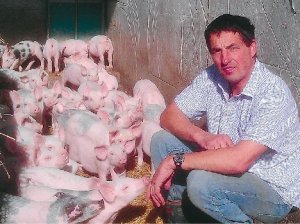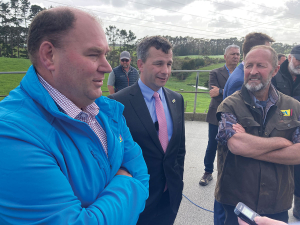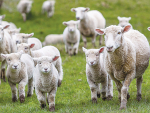Last year NZPork went to the High Court to challenge the process for setting new import health standards for pig meat, after MAF (now Ministry for Primary Industries) decided to allow imports of untreated pig meat from countries where the Porcine Reproductive and Respiratory Syndrome (PRRS) virus is present.
The High Court found in favour of the ministry, and NZPork has been left with no option but to appeal. Our legal advice is that we have a substantive case. However, it is a great disappointment that we have to pursue a legal route. It's a step we've had to take after numerous attempts to engage with MPI on how the risk is expected to be managed in New Zealand have come to nothing. Quite simply, NZPork's objective is to keep this devastating disease away from the New Zealand herd.
The financial cost to the industry has been very high. We've sought scientific analyses and made submissions to the ministry, as well as our legal costs – $1.4 million to date – but the cost to our animals and our industry if PRRS becomes established in New Zealand would be much more severe.
We went to court to question the process the ministry's director-general is required to follow when considering an independent review panel's report. The scientific concerns of our experts were endorsed by the panel, but the director-general proceeded to approve the new import health standards anyway. In essence, the High Court decided the director-general could consider the independent review panel as just another piece of advice to be accepted, rejected or ignored.
The impact of the process MPI followed has very serious implications on the risk of PRRS to our pig herd. Our own scientific assessment, by internationally recognised epidemiologists with pig disease expertise, is radically different from the analysis on which MPI based the new standards. There is scant science to guide any assessment of the infectiousness of infected pig meat. MPI has done no assessment on the quantities of infected pig meat that will enter New Zealand, nor how much infected meat would end up as a waste product, or how much of that waste would be fed to pigs.
MPI's own assessment is that the Biosecurity (Meat and Food Waste for Pigs) Regulations 2005 – which in theory stop people feeding uncooked swill to pigs – are unenforceable. Waste feeding rules have not been broadly enforced since 1999. Given the widespread level of pig ownership in New Zealand, the established culture of waste feeding, and the highly infectious nature of PRRS, permitting the distribution of infectious meat throughout New Zealand is a risk we cannot afford to take.
Under the World Trade Organisation's sanitary and phytosanitary measures (SPS), New Zealand is entitled to policies which protect its animal life, provided these are based on appropriate scientific evidence. Our scientific experts believe the previous standards were required to manage the risk of the introduction of PRRS, and that the new standards pose an unacceptable risk.
The WTO requires protections under SPS to be set at a consistent level across all industries within a country. I can only imagine how the red meat industry would react to a similar approach that allowed imports of meat from countries infected with foot-and-mouth disease, so long as each piece of meat was less than 3kg with major lymph nodes removed.
There are simply too many unanswered questions and too many risks. We can compete with imported meat, but don't expose our animals to devastating exotic diseases at the same time.
• Ian Carter, is the chairman of NZPork

















